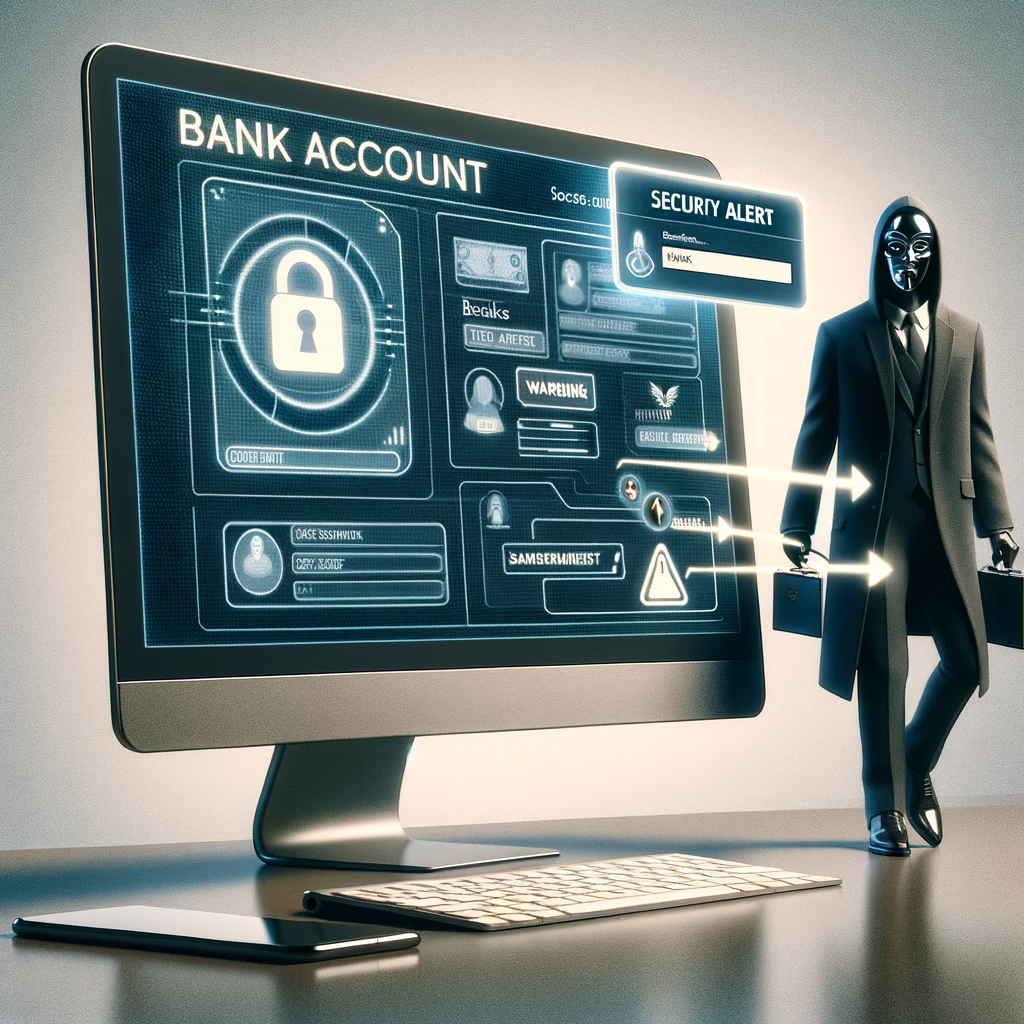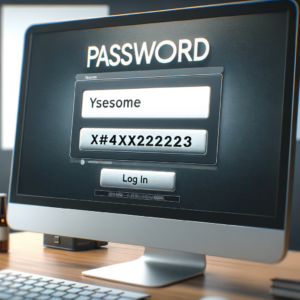
It is evident that cybercrimes have become a common practice over the years. The tech world is going through major improvements. It is evolving further and further—so are the hacking systems, methods and minds of the hackers involved—a hacked bank account recovery guide is of dire need.
Around 318,000 cases of credit card fraud and 111,000 cases of new bank account fraud have been reported by U.S natives in only 2022. These numbers speak for themselves and add to the problem at hand—a bank account being hacked. Here’s a helpful Hacked bank account Recovery Guide to make the process seamless for you:
My Bank Account Was Hacked! What Should I Do?
Finding out that your bank account was hacked will keep you in a loop of stress—quite frankly, it’s not over yet! You can still do a lot to either recover your bank account or to stop the perpetrator from stealing your hard-earned money. Here are a few steps you should take into consideration if your bank account was hacked:
Contact the Bank’s Fraud Department
If you see fraud on your account statement, immediately rush to your account provider’s website and look for their help and support pages. These pages will have the required information to brace you for a while and will have further contact information (e.g. an active helpline) to get in touch with a professional from your account provider’s side. These professionals are trained to tackle any such situations, such as a hacked bank account, and will guide you through the process swiftly.
Take a look at your email account
Make sure to take a look at your email account for email filters or forwarding rules. Cybercriminals use a common tactic by setting up a forwarding rule when hacking an email account. This means that all the emails received in your account are automatically copied and sent to the perpetrator (which they then use to reset all your passwords). Information about this will be available on the email provider’s website in detail. However, in case you don’t find what you are looking for, make the best use of the search engine.
Change passwords
Once you know there are no unwanted email forwarded rules, change the password.
- Change the password of the account that was hacked.
- Change the password of any other online accounts with the same password.
Cybercriminals know that people mostly use the login credentials for different accounts, so you have to change the same passwords everywhere so that they can’t back any further accounts.
Log out of all devices from your account
After changing passwords, you need to log out of all devices or apps from the account that was hacked. You can do this from the Settings section in apps or websites (might be in the Privacy or accounts section).
Set-up 2-step verification
Setting up a 2-step verification or two-factor authentication is the ultimate security you can have for any account. This way, even if a cybercriminal has your password, they can’t break into your account. 2-step verification usually sends a PIN or verification code to your contact number or email, and after that you can log-in to your accounts. You can set up 2-step verification in the Settings section of your account app/website.
Update Devices
Always remember to update your devices as soon as an update is available. Each subsequent update comes with improved security features and safety measures for viruses, malware and any hack attempts into your bank account. Updated devices will have a lower chance of getting hacked.
Let your contacts know
Make sure to reach out to your friends, family and/or followers and let them know that your account was hacked. This will alert them if they receive any notification from the hacked account.
Check bank statements for any unauthorized activity
Check your bank accounts for any unauthorized purchases or transactions. If you need further support, you can get in touch with your bank for details. Check your banking information for a new account or other suspicious account activity such as fraudulent charges or a purchase in a unfamiliar location.
File a report
Filing a police report after your bank account was hacked may not always bear fruit. Finding cybercriminals isn’t an easy task, but if the perpetrator is caught, they could be fined up to $1 million or may be sentenced to prison for 30 years.
Signs your bank account has been hacked
Usually you can notice some signs a hacker accesses your bank account. Be aware of the following and take immediate action:
- Unauthorized Purchases – You can spot your online account being hacked if there are purchases being made that you never did. Keep an eye on transactions being made from locations where you never went. Check your account regularly. Make sure to contact your bank asap if you notice unauthorized charges.
- Suspicious transactions – Some cybercriminals make small purchases/transactions to see whether the card is working or not. If you get text alerts or email alerts of this unusual activity, your financial information might have been hacked!
- Can’t log in? – When someone tries logging into your account again and again or makes too many transactions, your account may get blocked. This is a surefire sign of a hacked bank account.
- A call from the bank or Credit Union – In case of any breach, your account providers will call you to inform you about it. However, make sure not to reveal any personal information to the caller.
- Closed/empty account – If you find that your bank account has been completely drained or closed, it might’ve been a prey to hackers.
- Card gets denied – Denied card or transactions mean that your account was freezed by the account providers probably because they noticed suspicious activity or numerous transactions.
- Data Breach Notice – Under California law, banks are required to notify their customers if they have had a recent breach of customer data. This may lead to your bank card being compromised and money stolen.
Tips to Protect Your Bank Account from Hackers
Despite enhanced cybercrime tech, there are still a number of ways you can protect your online banking account from hackers:
Prioritize Online Safety
You have to make an effort to stay safe online so that hackers can’t get to you at all! Here are some tips:
- Always check site security—secure URLs always start with https and not http.
- Try to avoid public networks for online banking. Using them might put your personal information and device’s security at risk.
- Refrain from handing out your contact info to strangers—not everyone is your ally!
- Invest in anti-virus and anti-malware software. Running these will prevent any viruses or information leaks.
- Don’t trust spam emails. Pro hackers mimic online banking websites and send emails from there. Never respond to such emails let alone share your personal information of online banking.
Strengthen Your Password
Strong passwords and login credentials coupled with a few other security measures can be the thin line that prevents your bank accounts from being hacked. Here are some useful tips:
- Avoid using similar passwords. Don’t use the same password for different social media accounts. Worst case scenario, one account being hacked will put all others at risk too, so always use different passwords.
- Strong security questions. These are not verified, so you can almost type anything. Try to go with a difficult question or think of a not-so-easy to guess answer.
- 2-step verification or two-factor authentication. Set it up for your bank account so that even if someone knows your password, they can’t login to your bank accounts.
- More characters and symbols in password. Make a password that has a greater number of characters and a variety of symbols mixed with each other. This makes it very difficult for hackers to crack.

Last but not the least, always report suspicious activity, contact your bank and be vigilant. Double check your banking info to see whether any unauthorized purchases were made. Furthermore, keep a check on your credit card history and locations where the credit card was used. Sign up for text message alerts so that you get notified whenever your debit card was used.
Types of bank account hacking and fraud
Learning about the types of hacking and identity theft will arm you in combating them too. Here are the types of bank account hacking and fraud:
- Fraudulent calls and texts. This is a common identity theft practice. Hackers send emails, texts or call you for your online bank details—Never share!
- Phishing links. Yet another common malpractice to get hands on your data-Phishing attempts. These links and phishing attempts imitate popular websites or online banking sites. Don’t fall prey to these!
- Malware. Avoid visiting sketchy websites or signing up for such newsletters. These may infect your device with viruses that’ll intercept your information and passwords
- Public Wi-Fi networks. Ideally, try your best to avoid Wi-Fi in public places like malls, cafes etc. Reason being that hackers accesses after invading into your device through the network and access your online banking information for identity theft
- Card scanners. These devices are the pinnacle of fraudulent activity. How? When placed over a legit card scanner, these may take a picture of your card and record the PIN as well; confiscating account information. That’s why whenever in an ATM, always wiggle the card socket to check for a fraudulent card scanner
Laws and Punishments

Cybercrime has increased hefty but the laws and punishments aren’t light either. The Computer Fraud and Abuse Act (CFAA) is the leading anti-hacking federal legislation. They prohibit and define unauthorized computer access and fraud department.
The CFAA came into being to protect the national information of U.S governmental and financial institution’s computer systems. It later went on to widen its scope to the whole country’s computer systems. Some criminal penalties under CFAA are:
- Obtaining National Security Information (first conviction up to 10 years, second conviction up to 20 years)
- Accessing a Computer to Defraud and Obtain Value (first conviction up to five years, second conviction up to 10 years)
- Accessing a Computer and Obtaining Information (first conviction up to one year, second conviction up to 10 years)
- Intentionally Damaging by Knowing Transmission (up to 10 years, second conviction up to 20 years)
- Extortion Involving Computers (first conviction up to five years, second conviction up to 10 years)
- Trafficking in Passwords (first conviction up to one year, second conviction up to 10 years)
FAQs
Do banks reimburse stolen money?
Most banks have a legal and ethical responsibility to reimburse (refund/repay) scammed or stolen money. This can be purchases, atm transactions, or other financial products. However, financial institutions often times will not reimburse stolen funds, even when it is clearly fraud from a hacker having access to your account. If a financial institution is refusing to reimburse you, reach out to Barthel Legal.
Will I get my money back if my debit card was hacked?
If your debit card was hacked and used, you need not worry about it because the law likely provides a remedy. This means that the best banks should refund your money soon after you give them notice of the charges. However, many banks do not return the money. If a financial institution is refusing to reimburse you, reach out to Barthel Legal.
What are my rights if my bank account is hacked?
In most cases, your bank is responsible to refund you any money that was stolen from you in an attempt of fraud activity or identity theft. They should take care of this as soon as possible. Probably by the next day of your problem being reported.
Who to call if your bank account is hacked?
Call bank immediately. You can find your bank’s number on your bank statement, debit card or bank’s website. If money was spent, they will make sure that no more money can be taken.
Why is all my accounts getting hacked?
A reason why all your accounts may be getting hacked is because your password is weak. Weak and sloppy passwords make it easier for hackers to crack into your devices. Not just that but if you are someone who posts a lot of personal information on your social media accounts, your account information might be just a blink away from a data breach. Online shopping accounts may also leak your bank info if they are not legitimate.
Do banks refund money if hacked?
Money can be refunded to you provided that you didn’t make the transactions or give permission for the individual to use your card.
Can someone access my bank account with my account number?
Account number alone isn’t sufficient bank information for someone to access your banking account. But if someone has your online banking account details or you’ve lost or stolen card, you can fall prey to fraudulent activity, identity theft and they make fraudulent ACH transfers as well.
If your bank account has been hacked and you need a competent attorney in your corner, please don’t hesitate to contact Barthel Legal today.

